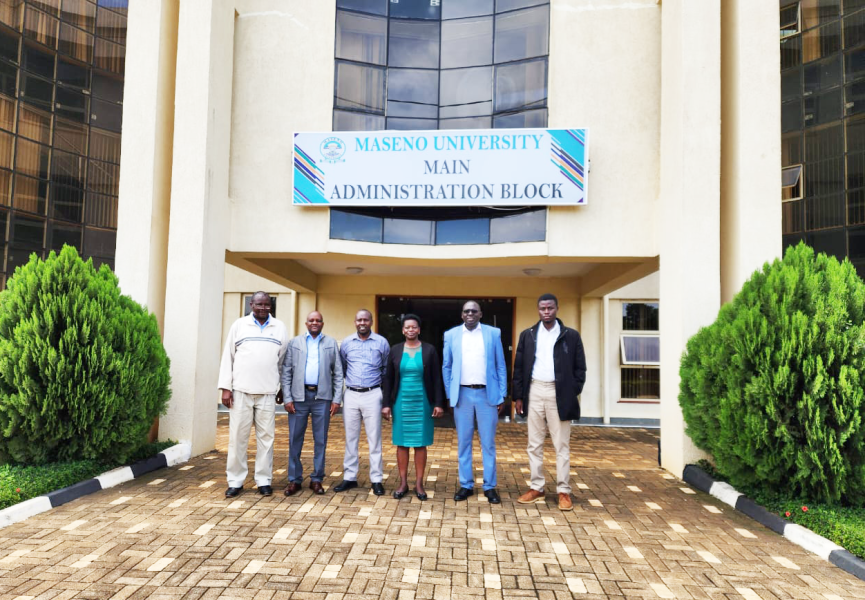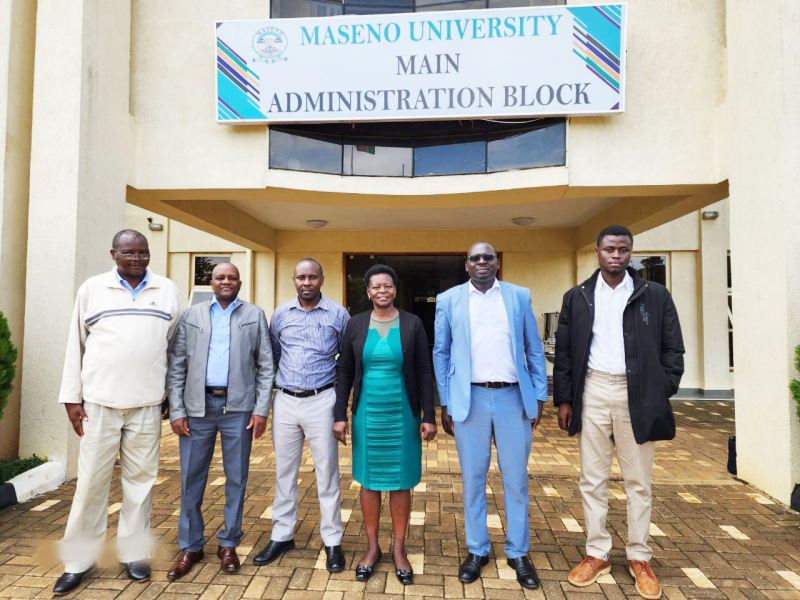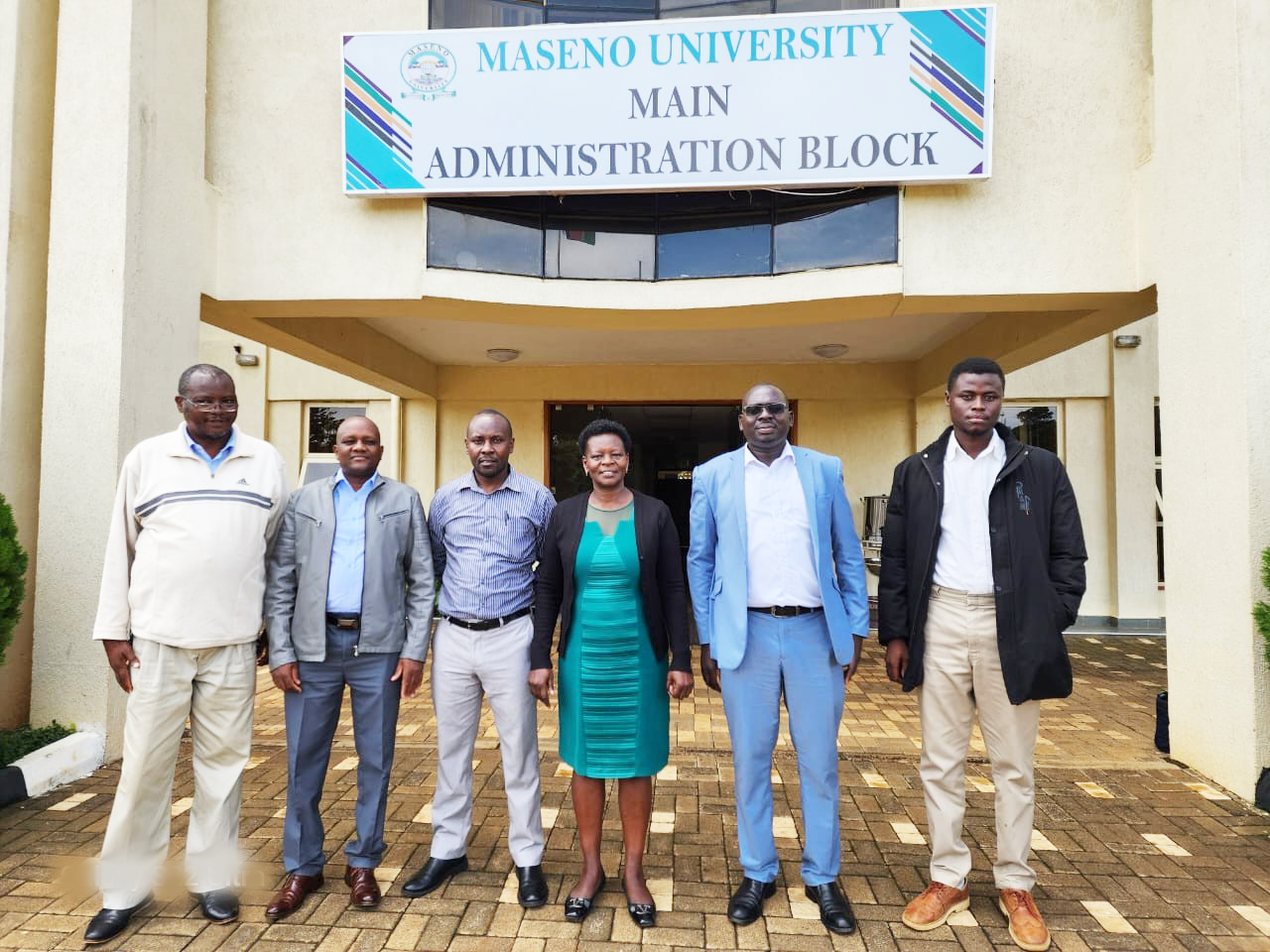Digital Transformation in Academia: Meru University Benchmarks with Maseno University on Examination Processing Automation.

Meru University Office of the Registrar, Academic and Student Affairs (Registrar, ASA) Visits Maseno University's Directorate of ICT Services to Benchmark on University's Examination Processing automation. The Director ICT services received the team and took through the various functionalities in the examination management module.
Meru University, to enhance efficiency and adopt best practices in academic management, the Department of Academic and Student Affairs from Meru University paid a benchmarking visit to Maseno University. The primary focus of the visit was to study the Automation of University processes, particularly in streamlining examination processing.
Purpose of the Benchmarking Visit
The delegation from Meru University, led by Dr. Lilian Mworia, Deputy Registrar Examination, and Mr. Antony Irungu, Ag. The Assistant Registrar of Academic Affairs aimed to understand how Maseno University has successfully implemented an automated examination management system within its ERP framework. The visit was part of Meru University’s broader strategy to digitize academic operations, reduce manual processes, and improve service delivery in student assessments, result processing, and records management.
Warm Reception by Maseno University’s ICT Directorate
Upon arrival, the Meru University team was received by Ag. The Director, Information Communication and Technology Services (ICTs), Mr. Cosmas Muthamia who was accompanied by a team of ICT staff and academic representatives. The host team provided an overview of Maseno’s ERP system, highlighting its role in automating key academic functions, including examinations.

Key Areas of Learning
During the engagement, the Meru University team explored several critical aspects of Maseno’s ICT automation system, including:
- Examination Registration and Scheduling – How the ERP automates student registration for exams and generates timetables seamlessly.
- Result Processing and Transcript Generation – The mechanisms for fast-tracking result computation and issuance of academic transcripts.
- Data Security and Integrity – Measures in place to safeguard examination data and prevent malpractices.
- Integration with Other University Systems – How the examination module interacts with student portals, finance departments, and lecturer interfaces.
- User Experience and Support Systems– Feedback mechanisms and technical support for students and staff using the ERP.
Outcomes and Expected Benefits
The benchmarking exercise provided Meru University’s team with practical knowledge on installing and optimizing their own ERP system to enhance examination management.
Key takeaways included:
- Reduction in Processing Time – Automation minimizes delays in result compilation and publication.
- Enhanced Transparency – Digital tracking reduces errors and ensures accountability in grading.
- Improved Student Satisfaction – Faster access to results and streamlined processes enhance the overall student experience.
Speaking after the visit, Mr. Antony Iruyu, the Ag. Registrar of Academic Affairs noted,
“This benchmarking visit has been an eye-opener. We have gathered valuable insights that will guide our own automation efforts, ensuring efficiency and reliability in our examination processes.”
Collaboration for Future Improvements
Both institutions agreed to foster continued collaboration in ICT-driven academic management. Maseno University shared its challenges and lessons learned during ERP Installation, implementation, offering Meru University a roadmap to avoid potential pitfalls.
Conclusion
As universities in Kenya continue to embrace digital transformation, such benchmarking visits play a crucial role in sharing knowledge and improving service delivery. Meru University’s initiative to learn from Maseno’s experience underscores the importance of technology in modern higher education administration.
The team from Meru University expressed gratitude to Maseno University for its hospitality and willingness to share expertise, paving the way for future partnerships in academic innovation.

